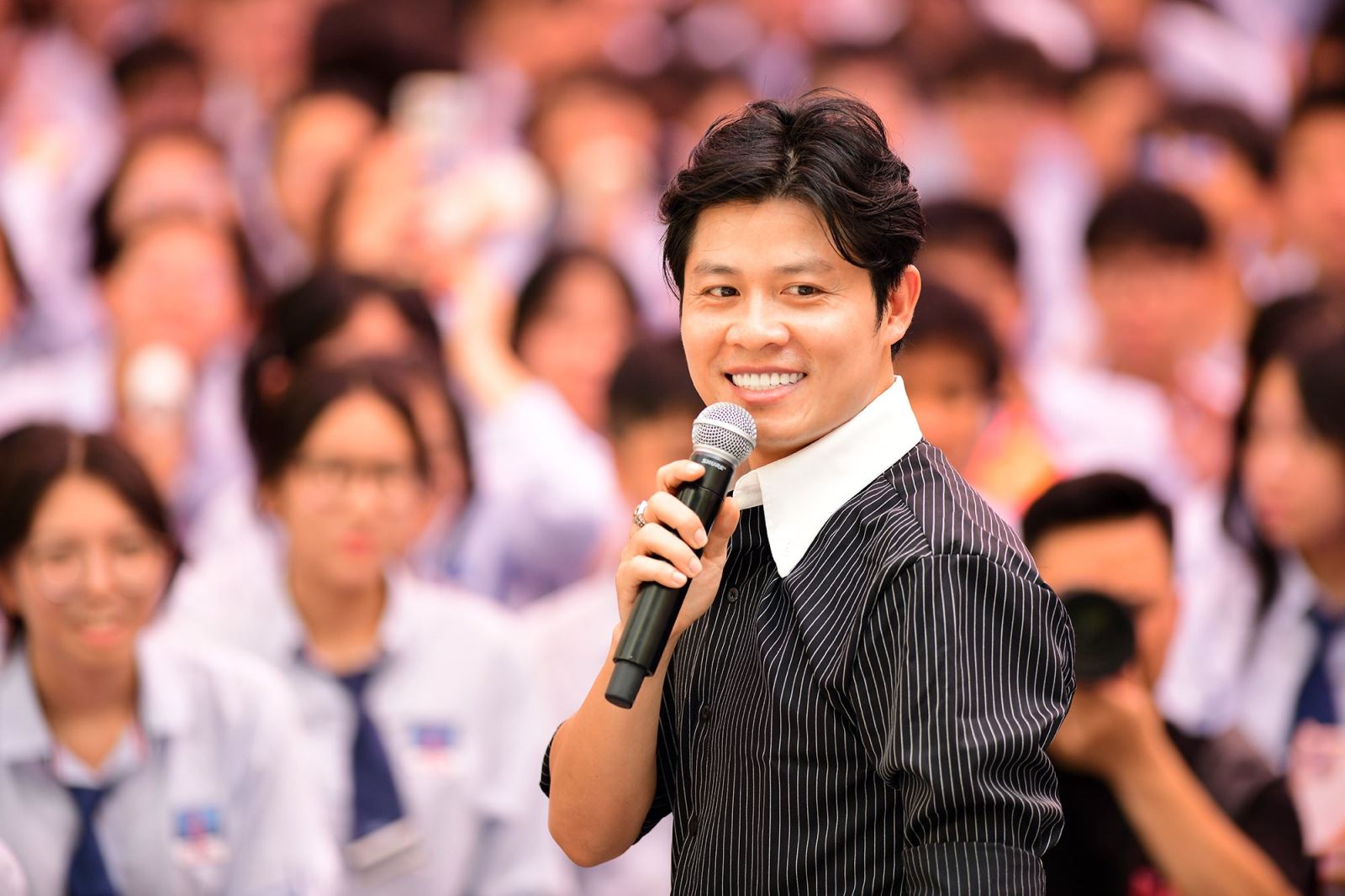
To better understand his future plans for composing, we had a conversation with Musician Nguyen Van Chung.
Sir, in your writing career, you have interacted with audiences of many different ages, but when it comes to schools, what do you feel?
Going to schools to interact and share with students is something I have been doing for a long time. Since 2012, when I started writing songs about fathers and mothers, I have gone to schools to interact with children. I have been to 60 kindergartens and primary schools in Ho Chi Minh City to teach singing, spreading the message of love for family, teachers, and school, and to 60 high schools to inspire dreams and passion when they graduate. I hope that through my songs, the souls of young people will be sown with love for themselves, their parents, family, teachers, friends... Above all, it is love for their homeland.
As a student, I also noticed that history classes were boring, requiring memorization of numbers and lacking modern equipment. But today, students have many supporting tools, listening, watching and learning history in the most natural way. When I come to school, the first thing I do is to inspire students, then spread the meaning of the song and help them understand why the author wrote that song.
“Continuing the story of peace ” is a song that I have been spreading. From there, the children love Vietnamese history more, are interested in the subject and love their homeland and country.
Sir, following the direction of General Secretary To Lam, from this school year, the education and training sector will invite artists, athletes, etc. to teach. What do you think about this, musician? If you were to teach directly, how would you accept this?
I have wanted this for a long time, so I am very supportive and willing to arrange time to participate. Since 2012, I have been to kindergartens and primary schools to give books and teach children to sing children's songs, especially preschool children. I also go to secondary and high schools to share and listen to the children's stories. What do they want, what songs do they need... to express their feelings for their loved ones, from which I have more inspiration to write songs about their parents. Or songs praising Uncle Ho, or historical figures such as Hai Ba Trung, Le Lai, Le Loi... This is the source of inspiration for me to write new songs to meet the children's wishes.
When I come to students, it is not just to communicate. I want to show them the reality of the work and life of an artist, to bridge the gap between theory and practice. Help them understand that to have 5 minutes on stage is a journey of hard training for musicians and singers. When they directly exchange and listen to these experiences, they will understand more about the career they will choose in the future.
Besides, when children talk to the musician, they will understand the message that the musician wants to convey through the song. Through that, they will be taught about love for family, parents, love for nature, peace, homeland and country. From there, children will be interested in learning and absorbing knowledge more proactively.
With the idea that students who learn directly with artists will be more interested in listening to music teachers in class. When they have the opportunity to interact with people who have experience and real-life experiences in music, they will have a more multi-dimensional and interesting perspective.
For example, with the profession of singer, for a long time everyone thought this profession was very happy, they could dress nicely, drive a car, and have a lot of money, but to have 5 minutes to shine on stage, they had to have years of hard training. From that, they have the right view of the profession.
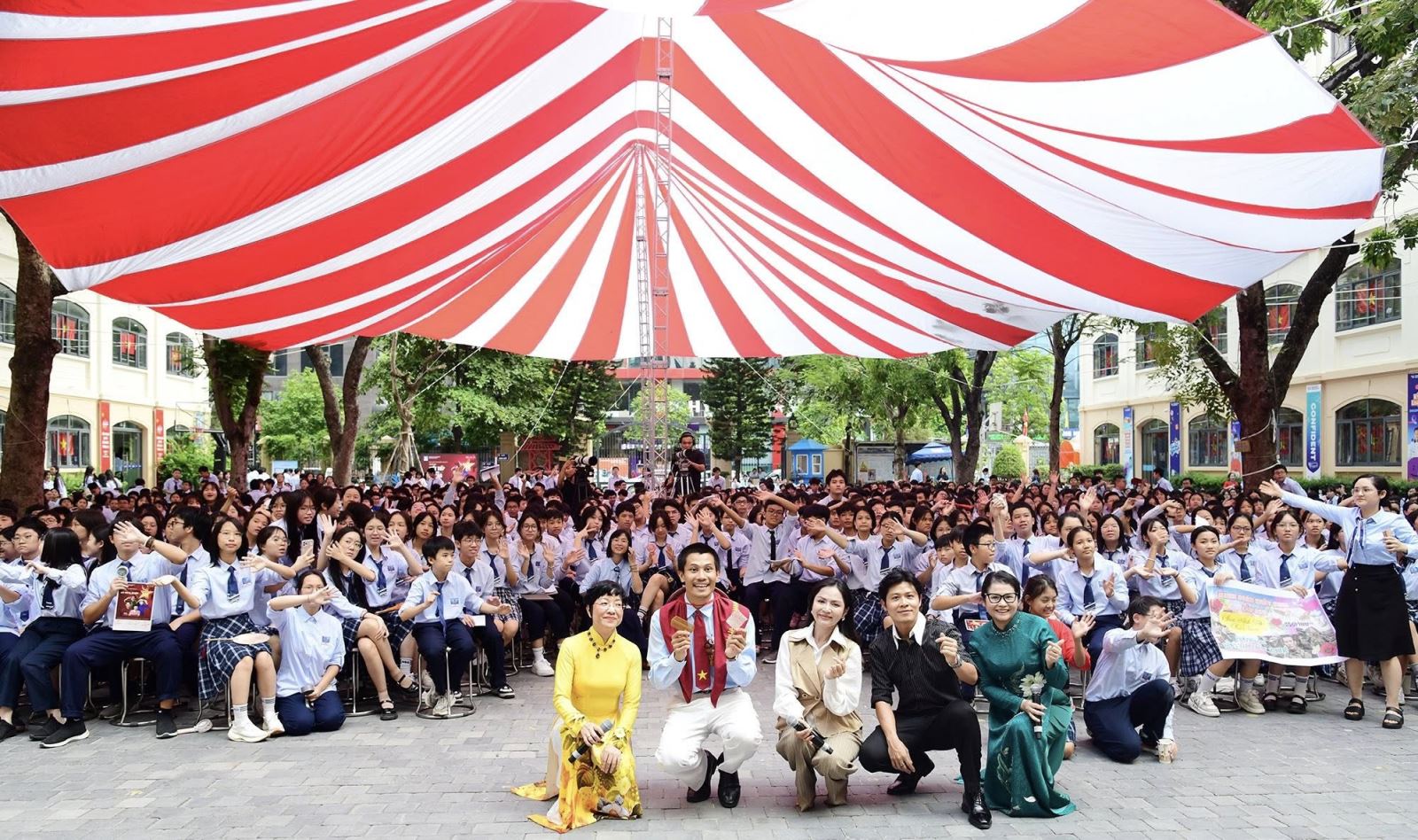
The mechanism is already in place, so how can we implement this teaching and learning method in schools? What do you think is the first thing that needs to be done?
First of all, about the songs. When I was in school, the songs in the textbooks were very well selected, but now we also need to consider the timeliness. It would be appropriate for these songs to belong to research groups. Nowadays, to effectively spread the message to students, there needs to be songs that are current at the present time. We should spend more time on these songs, both to make students interested in learning and at the same time, quickly absorb the messages that we want to convey to young people.
At first, when I wrote songs about children, I was a young musician who composed songs about children to enrich my writing career. That was all I could think of. But when I saw that children's songs had a positive impact on young people, I had more emotional material to compose.
For example, there are mothers who texted Uncle Chung to thank him because their children sang his songs and then expressed their love for them more, and their children often said they loved their mothers. Or the same goes for fathers. The father rarely expressed his feelings for his children, but when he heard the song about fathers and daughters, the father said, "I love you," and the child also said, "I love you."
The message of a musical work that I aim for is to evoke love in each person. It is that love that has changed the way of life, making people live happier. A family where the father says he loves his children, the mother loves her children, the children love their father, that family will be happy. I want to write more songs with such messages, to spread them more. That is the reason why I write songs about love for the country.
We cannot shout “children, love your country”, “children must love this Fatherland”… It is better to compose a song for the young people, they will love that song, be impressed with the lyrics of the song, from there they will realize that they love their country and peace. That is the way of education that I really like.
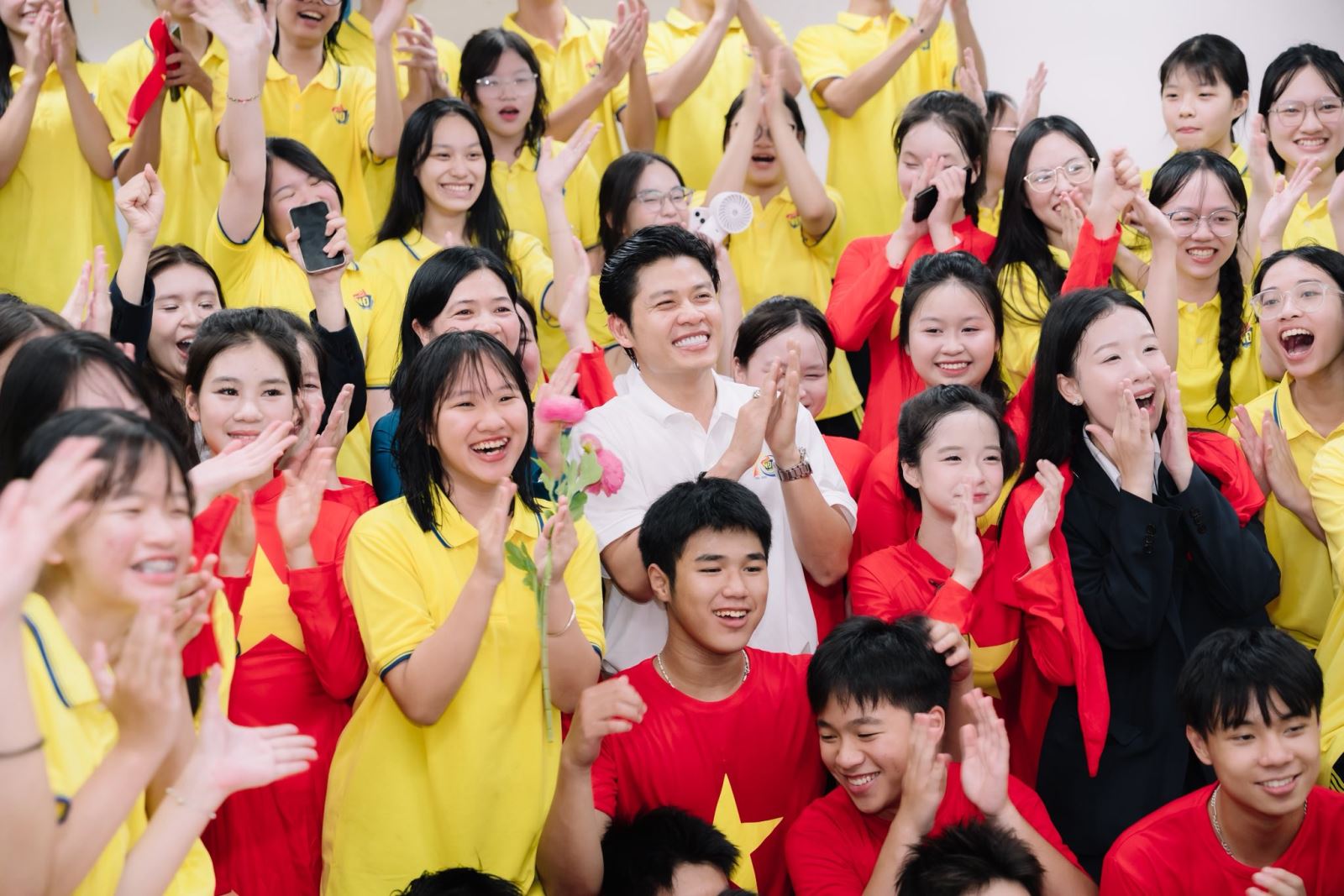
To encourage artists, musicians, singers, athletes, etc. to come to schools to exchange and teach, what specific conditions are needed, sir?
In my opinion, flexibility is needed when applying this policy. Because in the past, I participated in exchanges or taught extracurricular activities at international or private schools, they all had the initiative in terms of finance and student timetables. But with public schools, it is different... In fact, I know many schools still focus on subjects such as Literature, Math, Physics, Chemistry... but neglect Music.
For this policy to be truly effective, schools must have flexibility in their timetables and appropriate funding to sustain this long-term, not just for a short period of time. On the other hand, not all artists, musicians, and singers have the time and conditions to come to all schools. Therefore, there needs to be a suitable mechanism for artists, treatment, or recognition for them to create stability and longevity for this humane policy.
Thank you very much!
Source: https://baotintuc.vn/giao-duc/nhac-si-nguyen-van-chung-den-voi-hoc-sinh-toi-co-them-chat-lieu-sang-tac-20250919130539979.htm






![[Photo] Opening of the 14th Conference of the 13th Party Central Committee](https://vphoto.vietnam.vn/thumb/1200x675/vietnam/resource/IMAGE/2025/11/05/1762310995216_a5-bnd-5742-5255-jpg.webp)






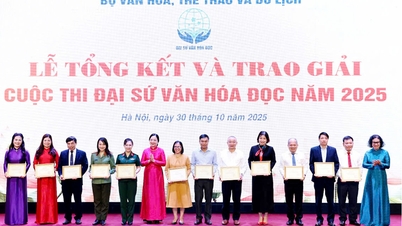

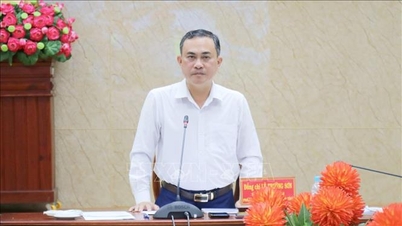







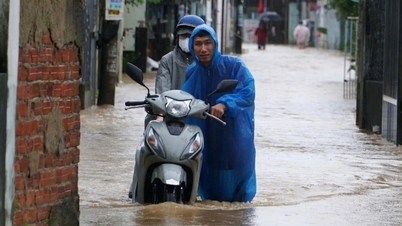

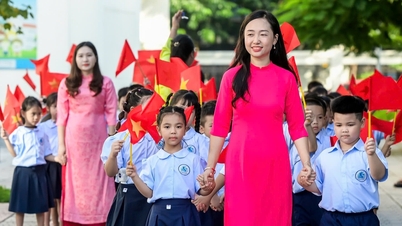






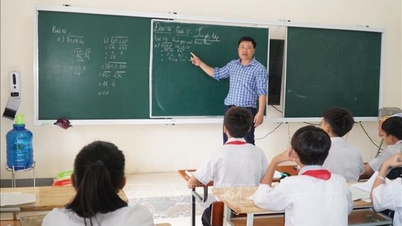
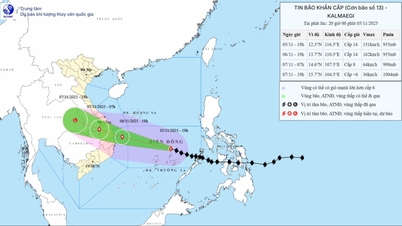
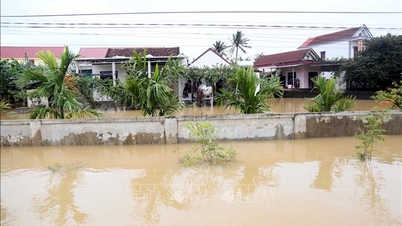
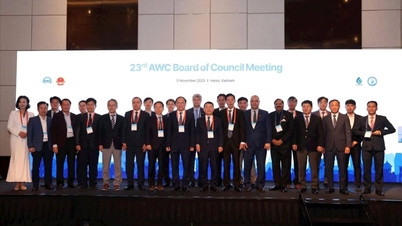
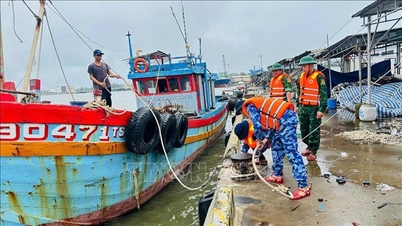


![[Photo] Panorama of the Patriotic Emulation Congress of Nhan Dan Newspaper for the period 2025-2030](https://vphoto.vietnam.vn/thumb/1200x675/vietnam/resource/IMAGE/2025/11/04/1762252775462_ndo_br_dhthiduayeuncbaond-6125-jpg.webp)
















































![[Motion Graphics] 5 notes when converting from lump-sum tax to declaration](https://vphoto.vietnam.vn/thumb/402x226/vietnam/resource/IMAGE/2025/11/06/1762381214740_fb_thoi-tiet-cms-1200x800-3.jpeg)
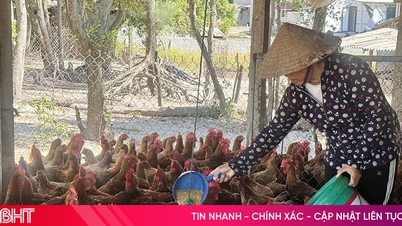

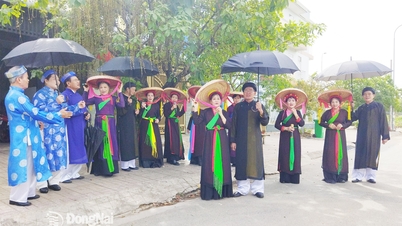














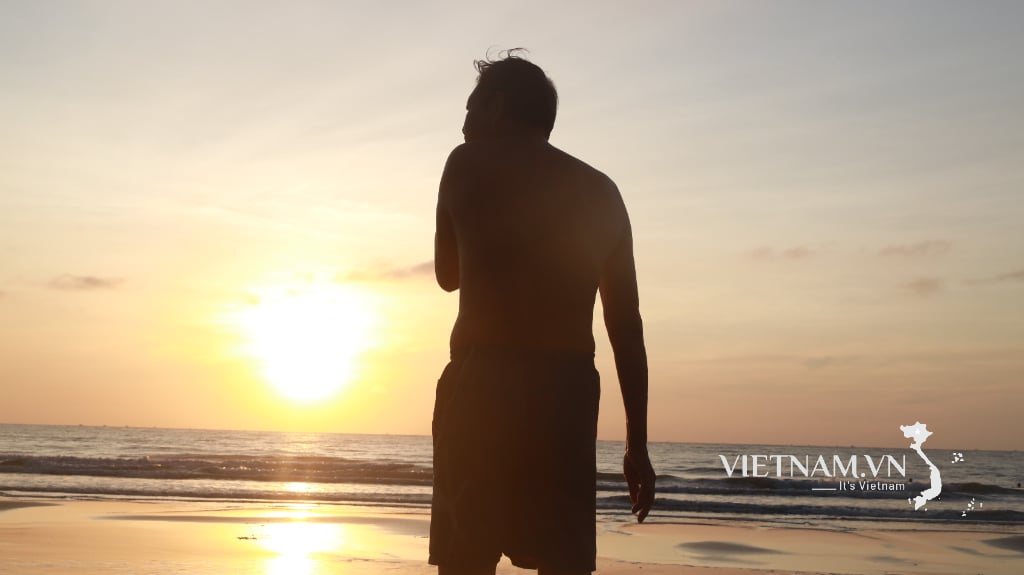
Comment (0)